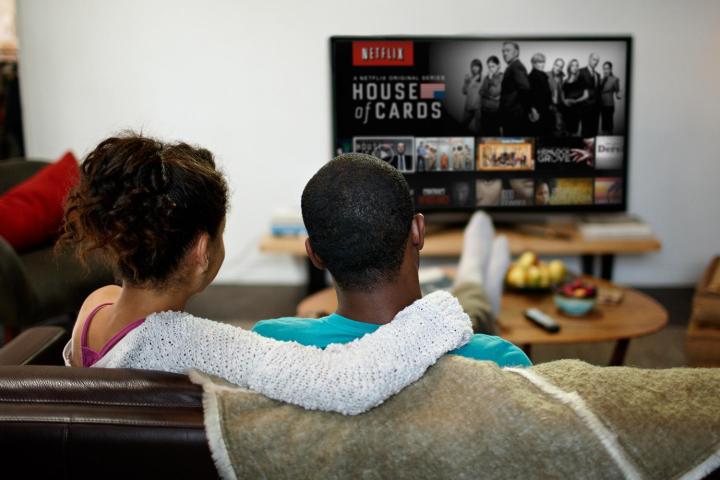
Don’t get me wrong. I love Netflix. But the same tides currently swelling against broadcast and cable will one day turn against Netflix, too.
Netflix will only be a stop-gap solution at best.
There’s a reason why consumers are clamoring for unbundled cable channels. There’s a sense of “bloat” that’s hard to shake when you flip past channels you never watch. Verizon, Dish, and Sony are just a few of the companies hoping to capitalize on that sentiment by offering newer, more customizable alternatives to traditional cable. Netflix, Hulu Plus, and Amazon Prime Instant Video are already in a great position to gobble up cord cutters. À la carte channels, mini-bundles, and streaming services are the future, and it doesn’t take Nostradamus to predict that. What no one seems to be predicting though: Netflix will only be a stop-gap solution at best.
Why? Because stand-alone channels and services might feel like more power for consumers, but that’s only compared to the current one-size-fits-all cable plans. Once the status quo has been reset, all bets are off. Only one person knows what the future really holds: Me. Eric Buchman, full-time dad, part-time prognosticator.

Let’s jump ahead a few years, to a world where cable content has been uncoupled from cable companies. Consumers will be able to get first-run, high quality shows without a cable box or a set of antennae. They will be able to individually subscribe to any number of services, building their own unique cable-like packages. And this content will be delivered via broadband, right to their TV or Xbox, or iPad, etc.
Sounds great, but consumers will still be letting corporations curate content for them – determining what they have access to, and when they have access to it. And corporate curation is still largely dictated by business, not taste. That’s why Sony’s cable-alternative won’t initially include any channels owned by Disney, why Starz won’t be in business with Netflix again, and why Amazon Prime seems to only be able to get Viacom-produced exclusives.
It’ll only be a matter of time until consumers realize they’re still paying for tons of content they don’t like.
It might make sense for PlayStation users to get easy access to ESPN while they play the latest Madden football game, but for that to happen, you first need to align the corporate interests of two mega-corporations. That could take a while, and I don’t think consumers have the patience to wait things out.
Right now, people hate their cable companies so much, anything that can help cut the cord feels like an improvement. In the future, though, companies like Netflix and Amazon Prime won’t have that luxury. It’ll only be a matter of time until consumers realize they’re still paying for tons of content they don’t like, even in the new stand-alone paradigm. And worse: In a fractured media universe, where households are expected to subscribe to multiple services and channels individually, consumers will notice they’re paying for a lot of content they don’t like more than once.
How many people currently paying for Pandora also pay for Spotify or Rdio? Not many, I presume, as there’s just too much content overlap. The same thing is already happening with streaming services. Though Netflix and Amazon Prime each have exclusives, their catalogs still overlap a great deal. People don’t really talk about the overlap right now because Amazon and Netflix are doing tremendous jobs branding themselves based on their few differences. But you know who else was really good at branding once? Cable companies. Until the early 2000s, cable was billed as a premium experience. Once cable TV became the norm for most Americans, people started to question just how “premium” that experience really was. Cable plans started to feel as bloated as a PC pre-loaded with Windows Vista. Seeing The Avengers and Skyfall as viewing options on both Amazon Prime and Netflix might feel like an embarrassment of riches right now, but in a few years it’ll feel like simple bloat and redundancy.

So what happens once the luster of new-fangled cable alternatives wears off? The near future might be à la carte channels and services, but the long-term future is à la carte everything. As in, choose your own shows. That’s the only end game that makes any sense. Why stop at unbundled channels if each channel still contains loads of content you feel like you’re paying for but don’t watch? Why subscribe to multiple streaming services if more than half of each service is duplicate titles? What are channels if not branded bundles of entertainment? In the future, only the strongest brands will survive.
Personally, I happen to think some form of bundling is great for creative output on a whole, but I’m clearly in the minority on that. That’s why the evolution of “the medium formerly known as television” won’t slow down until TV shows are commoditized individually, sort of like how movies have always been treated, with corporations doing as little curating as possible. The curators of the future will be, well, everyone. Social media will be new TV Guide.
Fifteen years ago, TV shows were still locked into a schedule, movies made most of their profits off DVDs, and the music industry saw Napster as an annoyance. In another fifteen years, everything about the way we consume media today will seem quaint and old fashioned. Even Netflix.


